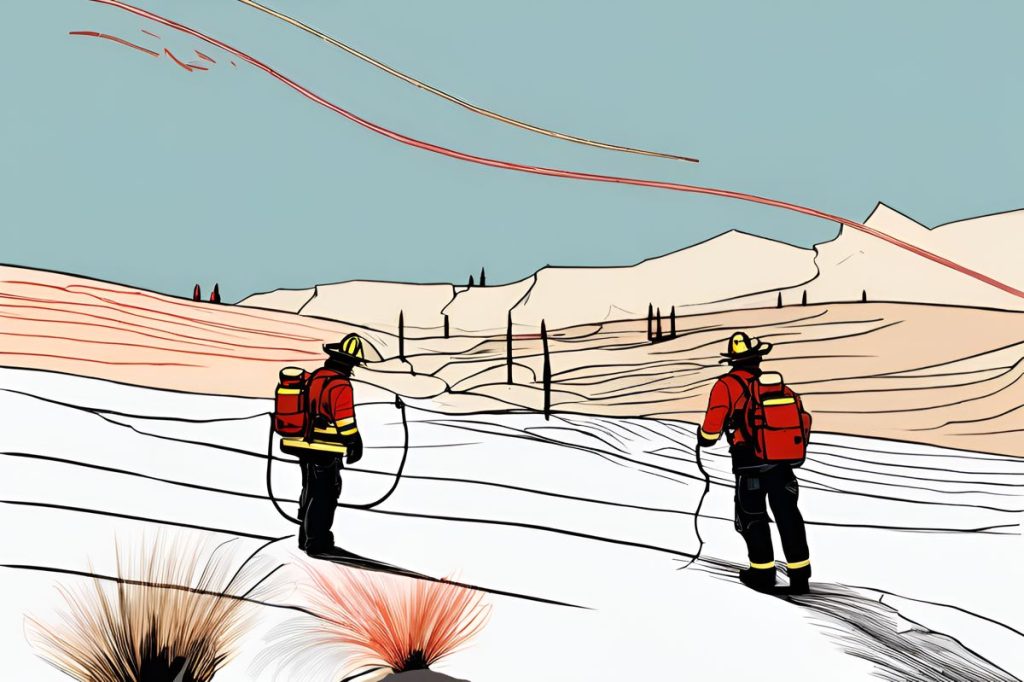In response to a dry winter raising wildfire and drought risks, fire prevention season has been extended from April to November, with increased public awareness campaigns and stricter legal penalties for fire-related offenses. Authorities have improved resource preparedness with well-staffed fire stations, aerial surveillance, and advanced fire detection systems, emphasizing community vigilance and involvement to combat the challenges ahead.
What are the concerns and measures for the upcoming summer due to a dry winter?
A dry winter has raised wildfire and drought risks for the upcoming summer. In response, fire prevention season starts earlier, from April to November, with increased public awareness campaigns and stricter legal penalties for fire-related offenses. Authorities have improved resource preparedness with well-staffed fire stations, aerial surveillance, and advanced fire detection systems, emphasizing the importance of community vigilance and involvement.
The Impact of a Dry Season
The winter season, typically known for its replenishing rains, has been unusually dry this year, causing concerns for the upcoming summer. Andreas Kettis, the spokesman for the fire services, has shared his worries during a recent interview. With precipitation levels significantly lower than average, the risk for wildfires and droughts during the warmer months has increased. Kettis emphasized that the majority of past fires, according to their investigations, can be traced back to human activities, a staggering 92 percent.
Despite the dry conditions, the 2022-2023 season has seen fewer fires compared to previous years. This reduction in incidents gives some hope for the upcoming fire season. Kettis remains cautiously optimistic, expressing his belief that the efforts made in extending the fire prevention season and increased environmental awareness may help keep fire incidents from rising.
Fire Prevention and Measures
The fire prevention season is set to commence earlier than usual in response to the early indicators of fire behavior suggesting a challenging summer ahead. The period now extends from April to November. The fire service is not sitting idle; they are actively engaging with the public through awareness campaigns aimed at preventing both arson and accidental fires.
Legal measures have also been bolstered recently, with harsher penalties introduced for fire-related offenses. Further legislative actions are underway, with a new bill proposing even stricter consequences for those responsible for starting fires. These changes in policy reflect the seriousness of the situation and the commitment of the authorities to crack down on culprits.
Resource Preparedness
As for readiness in terms of manpower and equipment, Andreas Kettis has provided assurances that all 17 rural fire stations are well-staffed. Additionally, the Forestry Department conducts round-the-clock aerial surveillance to monitor and quickly detect any fire outbreaks. This proactive approach is further supplemented by the installation and planned expansion of advanced fire detection systems. These systems are strategically placed not only in rural regions but also in industrial zones, enhancing the capability to analyze and respond to fires efficiently.
The public’s role in fire prevention has been highlighted as imperative. Kettis acknowledges that while authorities are ramping up their efforts in prevention, community involvement remains a critical component of a successful strategy against fires. With the combined efforts of updated legislation, improved resources, and public awareness, there is a concerted push to mitigate the risks posed by the dry winter months.
Staying Vigilant
The message is clear: vigilance and preparation are key. Andreas Kettis’s warning about the tough summer ahead is not just a mere prediction; it is a call to action for both the authorities and citizens. As the fire prevention season begins, it is now more important than ever to remain alert and informed about the potential dangers and the necessary precautions to ensure the safety of both people and the environment.
What are the concerns and measures for the upcoming summer due to a dry winter?
A dry winter has raised wildfire and drought risks for the upcoming summer. In response, fire prevention season starts earlier, from April to November, with increased public awareness campaigns and stricter legal penalties for fire-related offenses. Authorities have improved resource preparedness with well-staffed fire stations, aerial surveillance, and advanced fire detection systems, emphasizing the importance of community vigilance and involvement.
What impact has the dry season had on the upcoming summer?
The unusually dry winter has heightened concerns for wildfires and droughts in the upcoming summer. With precipitation levels significantly lower than average, the risk for fire incidents has increased. Despite this, the current season has seen fewer fires compared to previous years, providing some hope for the future. Efforts in extending the fire prevention season and increasing environmental awareness are believed to help mitigate potential fire incidents.
What measures are being taken for fire prevention and control?
The fire prevention season now extends from April to November, with increased public awareness campaigns targeting both intentional and accidental fire causes. Legal measures have been strengthened, with harsher penalties for fire-related offenses. The authorities are focused on enforcing the law more rigorously to deter potential offenders. Additionally, resources have been allocated to ensure well-staffed fire stations, aerial surveillance, and advanced fire detection systems to enhance preparedness.
How important is community involvement in fire prevention efforts?
Community involvement is crucial in combating the risks posed by the dry winter leading to a challenging summer. While authorities are taking steps to prevent and control fires, the public’s vigilance and cooperation play a significant role in the overall strategy. By staying informed, following guidelines, and reporting any suspicious activities, individuals can contribute to a safer environment for all.

